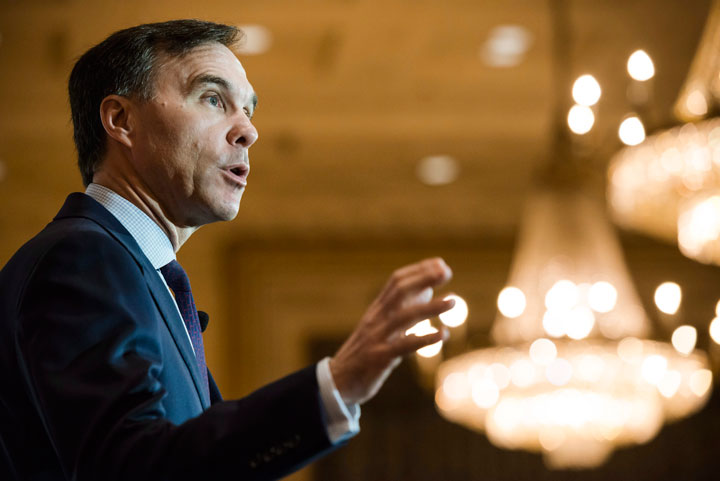Opposition members are questioning whether federal finance minister Bill Morneau should be involved in any decisions related to a future national pharmacare program, saying he may face a conflict of interest.

“If he’s leading this effort in any way, if he’s involved in the conversations around how pharmacare may be rolled out, this partial, fake pharmacare, does he stand to benefit or does his family stand to benefit in any direct way?” asked NDP member Nathan Cullen on Friday.
The federal government announced in its budget on Tuesday that it would create an advisory group to study the implementation of national pharmacare. On Wednesday, Morneau told the Economic Club of Canada that a new pharmacare policy would not necessarily mean scrapping the role of private companies in delivering drug coverage to Canadians.
“We need to consider how we can best make use of our existing system — which, after all, for most people in this room, is probably working — but recognize that there are very significant gaps that we need to deal with,” he said.
“We recognize that we need a strategy to deal with the fact that not everyone has access and we need to do it in a way that’s responsible, that deals with the gaps, but doesn’t throw out the system that we currently have.”
These comments prompted the Canadian Federation of Nurses Unions, Canadian Doctors for Medicare and the Canadian Labour Congress to accuse Morneau in an open letter of presupposing the outcome of the study. They also say that he has a conflict of interest since his former company, Morneau Shepell, is involved in health and benefits consulting.
Linda Silas, president of the Canadian Federation of Nurses Unions, said that Morneau’s background makes her question if he should be involved. “As we know the minister comes from an impressive background but it’s an impressive background as a consultant for all the industries in the insurance sector. So that’s where we perceive there could be a conflict,” she said. If there is a conflict, he should move away from the file, she thinks.
Morneau does not currently have any shares in Morneau Shepell, having sold them all in October following public scrutiny of his corporate interests. So, he would not directly profit from the company’s financial success.
WATCH: The NDP criticized the Liberals’ decision in Federal Budget 2018 to put together a pharmacare advisory council, asking them why the council was needed “if they already know what they want to do.”

He also said in a press conference Friday that he had not come to any conclusions on what a pharmacare system should look like. “I am agnostic on the conclusions other than making sure that we get Canadians to a position where everyone has access to health care that is going to make sure that themselves and their families are able to be healthy. That is our goal.”
Opposition Leader Andrew Scheer was also critical of Morneau’s involvement in the advisory board.
“We’d like to know, did he check with the ethics commissioner before starting this commission? What steps has he taken to make sure that there can be not even the suggestion of a conflict of interest?” he asked. “And if they were going to go down this road, especially after all he’s been through the past few months with these types of allegations and these questions, they should have really thought about this and put this out front before they went down this path.”
“For Canadians facing high drug costs, they’re wondering who is this guy working for? Because he certainly doesn’t believe in universality, doesn’t believe in helping out every Canadian but certainly believes in helping out himself. And that’s why he keeps ending up in these problems.”
–With a file from the Canadian Press


Comments